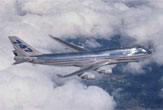New .travel Domain Names, But You Can't Have One

Get the world’s most fascinating discoveries delivered straight to your inbox.
You are now subscribed
Your newsletter sign-up was successful
Want to add more newsletters?

Delivered Daily
Daily Newsletter
Sign up for the latest discoveries, groundbreaking research and fascinating breakthroughs that impact you and the wider world direct to your inbox.

Once a week
Life's Little Mysteries
Feed your curiosity with an exclusive mystery every week, solved with science and delivered direct to your inbox before it's seen anywhere else.

Once a week
How It Works
Sign up to our free science & technology newsletter for your weekly fix of fascinating articles, quick quizzes, amazing images, and more

Delivered daily
Space.com Newsletter
Breaking space news, the latest updates on rocket launches, skywatching events and more!

Once a month
Watch This Space
Sign up to our monthly entertainment newsletter to keep up with all our coverage of the latest sci-fi and space movies, tv shows, games and books.

Once a week
Night Sky This Week
Discover this week's must-see night sky events, moon phases, and stunning astrophotos. Sign up for our skywatching newsletter and explore the universe with us!
Join the club
Get full access to premium articles, exclusive features and a growing list of member rewards.
NEW YORK (AP) -- A new online domain for the travel industry is open for business. Airlines, theme parks, restaurants, tourism offices and others in travel and tourism are eligible for Web sites and e-mail addresses ending in ''.travel.''
The new domain could give consumers confidence that they are dealing with a legitimate travel business or group, though the mantra of ''buyer beware'' applies: Operators of the domain won't be performing any credit or criminal background checks or offering any guarantees.
New York-based Tralliance Corp., a unit of Internet communications company Theglobe.com, won approval to run ''.travel'' earlier this year from the Internet's key oversight agency, the Internet Corporation for Assigned Names and Numbers, or ICANN.
Since July 1, industry groups such as the Adventure Travel Trade Association and the International Hotel and Restaurant Association have been verifying that companies and organizations belong to one of 18 eligible industry sectors.
Those approved were allowed to register and use ''.travel'' names starting Monday.
Although Tralliance billed the domain as an online space for the global travel and tourism community, travel journalist and author Edward Hasbrouck criticized the rules, saying they exclude travelers at the expense of promoting travel businesses.
''The domain appears to exclude the participation of the largest class of people who use the Internet to travel _ people who use the Internet to post their travel stories and photos and all sorts of things,'' Hasbrouck said.
Get the world’s most fascinating discoveries delivered straight to your inbox.
Cherian Mathai, Tralliance's chief operating officer, said individuals might qualify as travel media if they offer a service, such as advice on how to get there. Simply creating a site with family photos from Peru's Machu Picchu won't qualify, he said.
Approval is made on a case-by-case basis, he said.
So far, many of the eligible travel sectors are in transportation, including airlines, bus operators, cruise lines and passenger rail lines, a group that covers suburban commuter lines but not city subway systems. Also eligible are hotels, casinos, camp facilities, travel agents and providers of travel technologies.
To prevent overlap with ''.aero,'' an existing domain for the aviation industry, airports and aerospace companies don't qualify _ but airlines do.
Mathai said the list will be continually reviewed by a nonprofit group of travel associations, the Travel Partnership Corp., and may grow to include retailers of luggage, for instance.
ICANN has been creating new Internet suffixes partly because existing ones like ''.com'' are crowded, making easy-to-remember addresses difficult to obtain. Nonetheless, Web sites that already have a ''.com'' name are likely to keep it and automatically redirect visitors to the new ''.travel'' site instead.
''Nobody wants to give up a dot-com name at this stage,'' Mathai said.
 Live Science Plus
Live Science Plus





